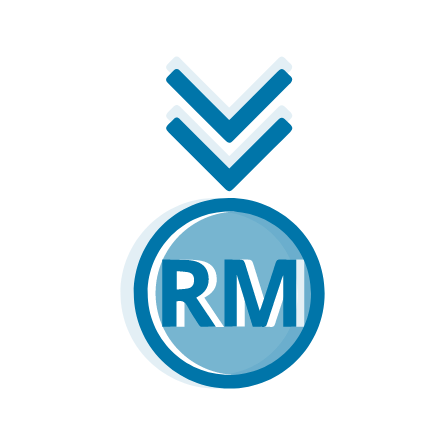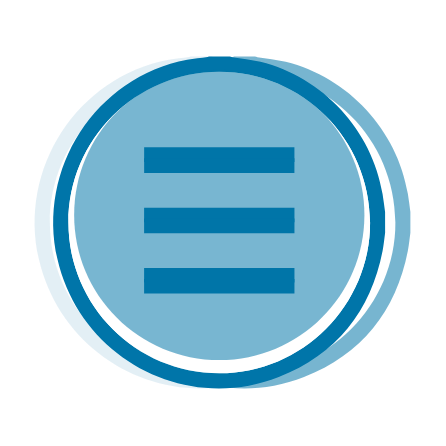Please wait a moment...
Most banks will require you to be a Malaysia Citizen or Permanent Resident, aged 21 and above (but not over 60 years old) and earn a monthly gross income of at least RM3,000 or more. Proof of identification, income, and residence must also be submitted to be approved for a personal loan.
Banks will also look at your credit rating before approving or rejecting the loan application.
Most personal instalment loans are repaid in fixed monthly instalments.
Repayments can usually be made by mail, online, through an ATM, or at a bank branch. If the loan is from the same bank you keep your savings account in, your loan repayments can be automatically debited from this account.
What is a Personal Loan?
A personal loan is a one-time loan where the principal and interest are repaid in small fixed amounts at regular intervals. Payments are usually made on a monthly basis for a predetermined period of time.
When should I use a Personal Loan installment ?
You can use a personal installment loan for needs that other loan types cannot cover. Examples include paying for weddings, renovations, and medical costs not covered by insurance.
Some people prefer taking out a personal installment loan instead of using a credit card because the fixed monthly repayments are easier to plan for.
For other purposes such as paying for cars, education fees, housing, it is usually cheaper to use a loan specific for that purpose. Ask your bank about car loans, education loans, home loans, et cetera. It is advised to only use personal loans when you cannot find a loan that matches your needs.
Do I Qualify for a personal loan installment ?
Most banks will require you to be a Malaysia Citizen or Permanent Resident, aged 21 and above (but not over 60 years old) and earn a monthly gross income of at least RM3,000 or more. Proof of identification, income, and residence must also be submitted to be approved for a personal loan.
Banks will also look at your credit rating before approving or rejecting the loan application.
How much Can I borrow ?
Many Malaysian banks and lenders can lend from RM1,000 up to RM400,000, depending on the borrower's credit history or rating. Most banks and lenders set an upper limit on how much applicants can borrow, which can range from 6 to 10 times the amount of their current salary, or a fixed amount. Whichever amount is lower will be the highest amount the borrower can have.
How Do I Replay My Loan?
Most personal instalment loans are repaid in fixed monthly instalments.
Repayments can usually be made by mail, online, through an ATM, or at a bank branch. If the loan is from the same bank you keep your savings account in, your loan repayments can be automatically debited from this account.
What is The Difference between ans secured and unsecured Loan ?
A secured loan means there is some form of collateral (guarantee) made to the bank. Examples of collateral include your property, car, stock portfolio, gold assets, etc. The value of the collateral must exceed the loan amount. If you do not repay the loan as agreed, the bank has the right to seize the collateral.
An unsecured loan does not require collateral. There is no guarantee beyond your signed loan agreement (which is a legally binding contract).
In general, unsecured loans have a higher interest rate than secured loans.
What is loan Insurance ?
Loan insurance, sometimes called "payment protection insurance," is insurance that helps protect loan policy holders from defaulting the loan. It provides financial support due to disability, unemployment, or other debilitating factors that prevents the borrower from repaying the loan immediately.
What is a late fee?
This is a fee imposed for missing repayments. There is usually a grace period of 60 days, starting from the stated date of repayment, during which late fees will not be charged.
What is a processing fee?
This is the amount charged for the administrative effort in granting you the loan (e.g. a legal team was required to draft the terms and conditions, staff are needed to upkeep accounts, and so on). Processing fees vary with each bank.
What is a Pre payment penalty ?
This is a fee imposed when you attempt to pay down your loan before the given loan tenure. To avoid this penalty, ask your bank or lending agency if they have policies on early repayment.
A personal loan is a one-time loan where the principal and interest are repaid in small fixed amounts at regular intervals. Payments are usually made on a monthly basis for a predetermined period of time.
Loan insurance, sometimes called "payment protection insurance," is insurance that helps protect loan policy holders from defaulting the loan. It provides financial support due to disability, unemployment, or other debilitating factors that prevents the borrower from repaying the loan immediately.
You can use a personal instalment loan for needs that other loan types cannot cover. Examples include paying for weddings, renovations, and medical costs not covered by insurance.
Some people prefer taking out a personal instalment loan instead of using a credit card because the fixed monthly repayments are easier to plan for.
For other purposes such as paying for cars, education fees, housing, it is usually cheaper to use a loan specific for that purpose. Ask your bank about car loans, education loans, home loans, et cetera. It is advised to only use personal loans when you cannot find a loan that matches your needs.



